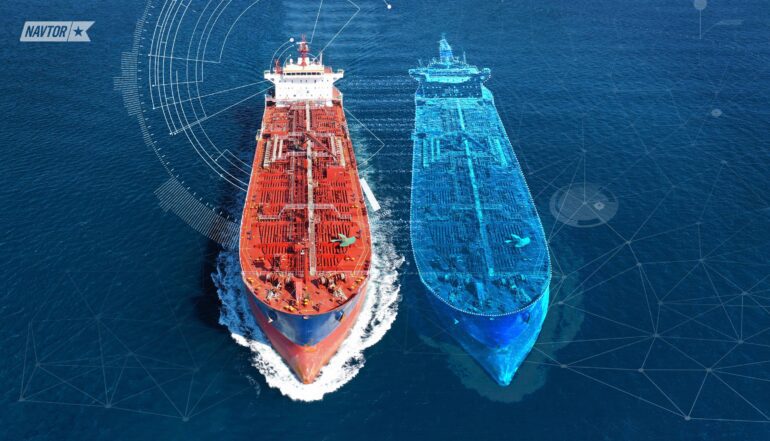TL;DR:
- GASS project led by Navtor, backed by six Norwegian partners, receives 44 million Norwegian kroner.
- Aims to develop AI-enhanced technology to optimize energy usage in the maritime industry.
- A collaborative effort to help vessel owners reduce greenhouse gas emissions and stay competitive.
- Focus on addressing energy efficiency challenges in ship operating environments.
- The project utilizes digital twins and massive data sources for monitoring and optimizing fuel consumption.
- The GASS project is set to challenge existing solutions and improve voyage efficiency with AI technology.
- Potential for a significant one percent reduction in global greenhouse gas emissions if widely adopted.
- Part of the Norwegian Government’s Green Platform scheme.
Main AI News:
In a significant development for the maritime industry, the GASS project, spearheaded by Navtor and supported by six prominent Norwegian research, innovation, and industry collaborators, has secured a substantial financial injection of 44 million Norwegian kroner. The purpose of this infusion is to drive the development of cutting-edge AI-enhanced technology and services tailored to optimize the energy consumption of vessels and ships.
Joining forces with Navtor in this ambitious endeavor are Grieg Star, Maritime CleanTech, Scandinavian Reach Technologies, Simula Research Laboratory, SinOceanic Shipping, and Sustainable Energy. Their collective mission is to empower vessel owners and operators to proactively reduce greenhouse gas emissions. This collaborative effort aligns with the global shift toward sustainability, enabling businesses to enhance vessel performance, maintain competitiveness, and ensure compliance with evolving regulations and agreements.
The maritime sector has long grappled with the challenge of enhancing energy efficiency onboard vessels. This challenge is primarily attributed to the intricate nature of ship operating environments and the formidable complexity associated with processing data, notably AIS data, which is often fragmented and unreliable. Navtor views this endeavor as a momentous stride toward sustainable shipping. By amalgamating vast data sets from vessels and integrating them with digital twins, the project aims to develop services capable of monitoring, analyzing, and optimizing fuel consumption. Bjørn Åge Hjøllo, Chief Sustainability Officer at Navtor, emphasizes the significance of this initiative as it paves the way for more eco-friendly maritime practices.
Simula Research Laboratory highlights the limitations of existing solutions, which rely on sparse data sources and simplified assumptions about vessel and environmental conditions when optimizing voyage performance. These shortcomings result in suboptimal energy utilization. GASS seeks to disrupt the status quo by harnessing extensive data sources to enhance the energy efficiency of voyages. This will be achieved through a comprehensive array of operations, leveraging the power of cutting-edge AI technologies to fine-tune voyage routing and speed.
A compelling aspect of the GASS project is its potential for profound environmental impact. Simula estimates that if the GASS services are adopted by 30% of vessel owners and operators, it could translate into a substantial one percent reduction in global greenhouse gas emissions—a pivotal contribution to combating climate change.
Notably, the GASS project is one of nine green initiatives selected to receive funding through the Norwegian Government’s Green Platform scheme. This recognition underscores the project’s significance and its potential to usher in a greener, more sustainable future for the maritime industry.
Conclusion:
The GASS project’s substantial funding infusion and focus on AI-driven solutions for maritime energy efficiency signal a significant shift in the market. As businesses in the maritime sector increasingly prioritize sustainability and regulatory compliance, GASS’s innovative approach positions it as a key player in driving eco-friendly practices and competitiveness within the industry. The potential reduction in global greenhouse gas emissions underscores the project’s importance in shaping the future of maritime technology and environmental responsibility.

